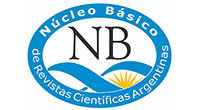Threatening the Archive, Threatening from The Archive
Strategies of Feminist Intervention on What Can Be Said
DOI:
https://doi.org/10.24215/23142502e046Keywords:
Archive, canon, feminism, critics, genderAbstract
Feminist cultural criticism (Richard, 2009) is a theoretical practice whose objectives are to analyze production and representation regimes from a perspective that seeks to dismantle essentialisms. In recent years, part of this critical strand has dedicated itself to revisiting the conformation of canons and archival corpus wondering, based on the observation of the androcentrism inherent in most of these materials, about their dynamics and observing the forms of the presence of female and queer writers in these spaces. By systematizing and intersecting relevant proposals, I intend to contribute to this line of research by questioning the relationship between canon and archive from gender studies based on the premise that through the practice of feminist cultural criticism it is possible to threaten and fracture crystallized social and identity constructions.Downloads
References
Amícola, J. (2006). Otras voces, otros cánones. Orbis Tertius, 11(12). https://www.memoria.fahce.unlp.edu.ar/art_revistas/pr.224/pr.224.pdf
Anzaldúa, G. (2016). Borderlands / La Frontera. Capitán Swing.
Arnés, L., De Leone, L. y Punte, M. J. (Directoras). (2020). Historia feminista de la literatura argentina. Eduvim.
Assmann, A. (2008). Canon and Archive. En A. Erll y A. Nünning (Eds.), Cultural Memory Studies: An International and Interdisciplinary Handbook, (pp. 97-107). De Gruyter.
Bhabha, H. K. (2002). El lugar de la cultura. Ediciones del Manantial.
Boccardi, F. (2013). Conocimiento y sexualidad. Notas acerca de la educación de la sexualidad y los mecanismos de producción de ignorancia. En A. Boria y F. Boccardi (Comps.), Prácticas teóricas I: lenguajes, sexualidades y sujetos (pp. 49-61). Ferreyra Editor.
Boria, A. (2016). Operaciones de la teoría feminista. En A. Boria y F. Boccardi (Comps.), Prácticas teóricas II: el lugar de la teoría (pp. 23-37). Universidad Nacional de Córdoba, Centro de Estudios Avanzados. https://rdu.unc.edu.ar/handle/11086/21142
Chatterjee, P. (2008). La nación en tiempo heterogéneo y otros estudios subalternos. Siglo XXI.
Ciriza, A. (2015). Construir genealogías feministas desde el Sur: encrucijadas y tensiones. Millcayac. Revista Digital de Ciencias Sociales, 2(3), 83–104. https://revistas.uncu.edu.ar/ojs/index.php/millca-digital/article/view/523
Del Gizzo, L. (2018). El canon frente al archivo. Avatares metodológicos de una relación complementaria. Chuy. Revista de estudios literarios latinoamericanos, 5(5), 45-69. http://revistas.untref.edu.ar/index.php/chuy/article/view/207/192
Derrida, J. [1995] (1997). Mal de archivo. Una impresión freudiana. Trotta.
Domínguez, N. y Perilli, C. (Comps.). (1998). Fábulas del género. Sexo y escrituras en América Latina. Beatriz Viterbo Editora.
Foucault, M. [1969] (2002). La arqueología del saber. Buenos Aires, Siglo XXI.
Franco, J. (1986). Apuntes sobre la crítica feminista y la literatura hispanoamericana. Hispamérica, 15(45), 31-43.
Gross, E. [1986] (1995). Qué es la teoría feminista. Debate Feminista, 12, 85-105. http:// www.jstor.org/stable/42624289
Haraway, D. (1995). Conocimientos situados: la cuestión científica en el feminismo y el privilegio de la perspectiva parcial. En Ciencia, cyborgs y mujeres. La reinvención de la naturaleza (pp. 313-346). Cátedra.
Jitrik, N. (1996). Canónica, regulatoria y transgresiva. Orbis Tertius, 1(1), 1-9. https://www.orbistertius.unlp.edu.ar/article/view/OTv01n01a11/pdf_324
Kosofsky Sedgwick, E. (1998). Epistemología del armario. Ediciones de la tempestad.
Lugones, M. (2021). Peregrinajes. Teorizar una coalición contra múltiples opresiones. Ediciones del signo.
Maradei, G. (2012). Disparar contra el canon: la literatura escrita por mujeres en las nuevas historias de la literatura argentina. Cuadernos del Sur, (42), pp.155-178. https://revistas.uns.edu.ar/csl/article/view/1569
Maradei, G. (2020). Contiendas en torno al canon. Las historias de la literatura argentina posdictadura. Corregidor.
Masiello, F. (1997). Las mujeres como agentes dobles de la historia. Debate feminista, (16), 251-271. https://debatefeminista.cieg.unam.mx/df_ojs/index.php/debate_feminista/article/view/414/352
Matto de Turner, C. (2017). Las obreras del pensamiento en la América del sur (1895). Asparkía. Investigació Feminista, (29), 169-179. https://www.e-revistes.uji.es/index.php/asparkia/article/view/2342
Moi, T. (1988). Teoría Literaria Feminista. Cátedra.
Muñoz, J. E. (1996). Ephemera as Evidence: Introductory Notes to Queer Acts. Women & Performance: a journal of feminist theory, 8(2), 5-16, https://doi.org/10.1080/07407709608571228
Richard, N. (2009). La crítica feminista como modelo de crítica cultural. Debate Feminista, 40. https://doi.org/https://doi.org/10.22201/cieg.2594066xe.2009.40.1439
Rufer, M. (2016). El archivo. De la metáfora extractiva a la ruptura poscolonial. En F. Gorbach y M. Rufer (Coords.), (In) disciplinar la investigación: archivo, trabajo de campo y escritura (pp. 160-186). Siglo XXI. https://www.academia.edu/31072685/El_archivo_De_la_met%C3%A1fora_extractiva_a_la_ruptura_poscolonial
Sánchez-Macedo, J. (2020). El giro archivístico: su impacto en la investigación histórica. Humanitas, 4(47), (pp. 183-223). https://humanitas.uanl.mx/index.php/ah/article/view/279
Spivak, G. C. [1985] (1998). ¿Puede hablar el sujeto subalterno? Orbis Tertius, 3(6), 175-235. https://www.orbistertius.unlp.edu.ar/article/view/OTv03n06t01
Spivak, G. C. [1999] (2010). Crítica de la razón poscolonial: hacia una crítica del presente evanescente. Akal.
Stoler, A. L. (2010). Archivos coloniales y el arte de gobernar. Revista Colombiana de Antropología, 46(2), 465-496. http://www.redalyc.org/articulo.oa?id=105020003009
Storni, A. [1920] (2018). Bien pudiera ser... En N. Fernández, Alfonsina Storni. Antología poética (pp.124). EUDEM.
Wittig, M. (2006). El punto de vista: ¿universal o particular? En El pensamiento heterosexual y otros ensayos (pp. 85-94). Egales.
Woolf, V. [1929] (2013). Un cuarto propio. Eterna cadencia.
Downloads
Published
How to Cite
Issue
Section
License
Copyright (c) 2022 Agustina Ruiz Bellingeri

This work is licensed under a Creative Commons Attribution-NonCommercial-ShareAlike 4.0 International License.
According to these terms, the material can be copied and redistributed by any means or in any format as long as a) the author and original source of the publication are quoted (magazine and URL of the work), access to the license is provided and whether changes have been made is mentioned; and b) the material is not used for commercial purposes.
The cession of non-exclusive rights means that after the publication (post print) in Boletín de Arte the authors can publish their work in any language, means and format; in such cases it must be mentioned that the material was originally published in this magazine.
Such cession also means the authorization of the authors for the work to be collected by SEDICI, the institutional archive of the National University of La Plata, and to be spread in the databases that the editorial team considers appropriate to increase the visibility of the publication and its authors.
Moreover, the magazine encourages the authors to deposit their productions in other institutional and thematic archives under the principle that offering the society the scientific and academic production without any restrictions contributes to a greater exchange of the global knowledge.
































